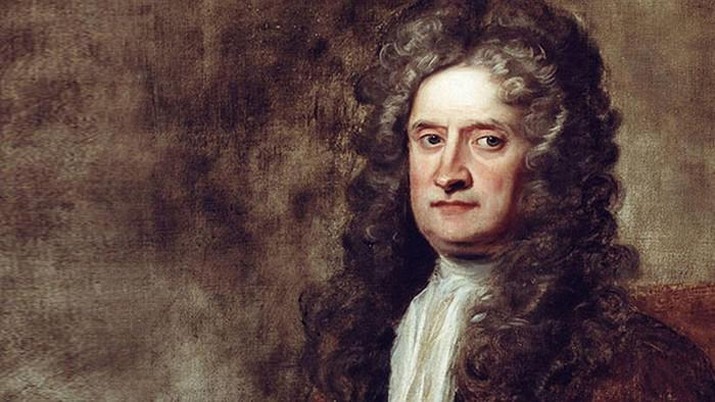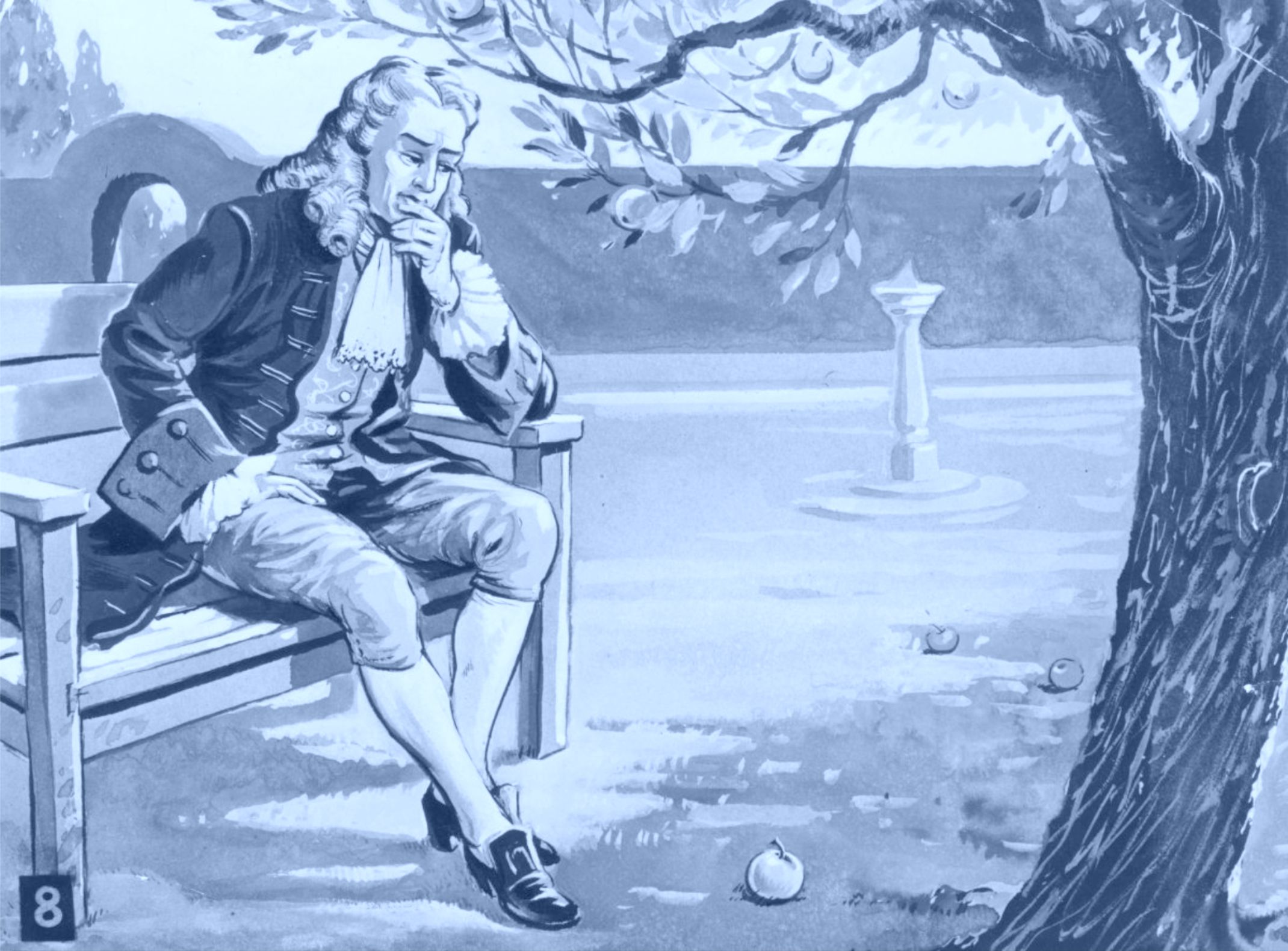Hello everyone, how are you on this sunny morning, hopefully we are always in good health and awake from things that we don't want, so this time I want to try to tell you about one of our activities with students at one of the graves of national heroes in our area. so before I continue, first of all I apologize if any of my words will make things uncomfortable, so for that I apologize a thousand times for that, because I have no experience with this.

Who does not know the figure of Sir Isaac Newton FRS PRS, He was a very proficient physicist as well as a British mathematician, astronomer, natural philosopher, alchemist, theologian and writer who is widely recognized as one of the greatest mathematicians, physicists in existence. in the world today, and the most influential scientist of all time. He was a follower of the heliocentric school and a scientist who was very influential throughout history, even being said to be the father of classical physics.
Isaac Newton was one of the greatest and most influential scientists who ever lived in the world at that time, Isaac Newton was born in Woolsthrope in England, which people are more familiar with on Christmas Day 1642 ago, if I'm not mistaken he was born on the same year as Galileo's death. at that time the boy named Isaac Newton he had already shown real prowess in the field of mechanics and was very dexterous with his hands. Although the child with the brightest school brain at school seems reluctant and doesn't attract much attention.

When he reached puberty, his mother took him out of school in the hope that his son would become a good farmer. Fortunately the mother was persuaded that her main talent did not lie there. It was here that Newton quickly absorbed what would become known to science and mathematics and quickly began to conduct his own investigations. Between the ages of twenty-one and twenty-seven he laid the foundations of the theory of science which in turn changed the world.
The middle of the 17th century was a period of germination of knowledge. The discovery of binoculars near the beginning of the century had completely changed the whole view of astrology. The English philosopher Francis Bacon and the French philosopher Rene Descartes both called on scientists throughout Europe to no longer rely on Aristotle's power, but to carry out experiments and research on the basis of their own starting point and needs. What was proposed by Bacon and Descartes, has been put into practice by the great Galileo. Newton's use of binoculars, a new invention for astronomical research, revolutionized the investigation of the field, and his work in mechanics resulted in what is now known as Newton's first "laws of motion".
Although Copernicus and Galileo have pushed aside some rambling assumptions about ancient knowledge and have presented a more general understanding of the universe, there is not a single point of thought that has been carefully formulated that can divert the heap of dreary understanding. None other than Isaac Newton was the one who was able to present a collection of theories that were neatly summarized and laid the cornerstone of modern science which is now the trend of people.
Newton himself was rather reluctant to publish and announce his findings. His basic ideas had been formulated long before 1669 but many of his theories were not known to the public until many years later. The first publication of his discoveries involved overturning the old notion of light. In a series of careful experiments, Newton discovered the fact that what people commonly call "white light" is actually nothing but a mixture of all the colors contained in the rainbow. And he also very carefully analyzes the consequences of the laws of reflection and refraction of light. Adhering to this law he --in 1668--designed and simultaneously built the first reflecting telescope, the model of binoculars used by most astronomers today. This discovery, together with the results obtained in the field of optical experiments which he had demonstrated, were presented by him to the British royal research institute when he was twenty-nine years old.
Newton's success in the field of optics alone may be enough to place Newton on the list of this book. His greatest contribution to mathematics was his discovery of "integral calculus" which he might have solved when he was twenty-three or twenty-four. This discovery is the result of the most important work in the field of modern mathematics. It is not only the seed from which modern mathematical theory grows, but also the inevitable fixture without whose discovery the advancement of modern knowledge that would follow would be impossible. Even if Newton did nothing more, his discovery of "integral calculus" alone was sufficient to lead him up the ladder high in this book's chronological list.
But Newton's most important discoveries were in the field of mechanics, the knowledge around the motion of objects. Galileo was the first to discover the law that describes the motion of an object when it is not influenced by external forces. Of course basically all objects are affected by external forces and the most important issue in mechanics is how objects move in that state. This problem was solved by Newton in his second and most famous law of motion and can be considered the most important law of classical physics. The second law (matmatically described by the equation F = m.a) stipulates that the acceleration of an object is equal to the net force divided by the mass of the object.
To these two laws, Newton added his famous third law of motion (affirming that for every action, such as a physical force, there is an equal reaction to the opposite) and his most famous discovery of the scientific principle of the law of universal gravity. These four sets of laws, when combined, will form a unified system that applies to all macro-mechanical systems, from the wobble of the pendulum to the motion of the planets in their orbits around the sun that can be monitored and their movements can be predicted. Newton not only established the laws of mechanics, but he himself also used the tools of mathematical calculus, and showed that these fundamental formulas could be used for problem solving.
What is our assessment of the importance of Newton's science? If we browse through the index of the encyclopedia of science, we will find about Newton and his laws and discoveries two or three times more in number than about any other scientist. Said the great scholar Leibniz, who was not at all close to Newton, and was even involved in a heated argument: "Of all things related to mathematics, from the developing world to Newton's existence, it was this man who made the best contribution." Also praise was given by the great French scholar, Laplace: "Newton's Principia is far above all the products of the human genius that exists in the world." And Langrange often stated that Newton was the greatest genius who ever lived.
While Ernst Mach in his writings in 1901 said, "All mathematical problems that have been solved since his lifetime are the basis for the development of mechanics based on existing laws, And he at that time found a container of separation between facts and laws, able to describe some miracles but not much help to make conjectures; he bequeathed to us a continuum of laws that can be used for physical problems in a very broad secret scope and contain the possibility of making precise assumptions.
Congratulations @barayev! You have completed the following achievement on the Hive blockchain and have been rewarded with new badge(s):
Your next target is to reach 50 upvotes.
You can view your badges on your board and compare yourself to others in the Ranking
If you no longer want to receive notifications, reply to this comment with the word
STOPCheck out the last post from @hivebuzz:
Support the HiveBuzz project. Vote for our proposal!